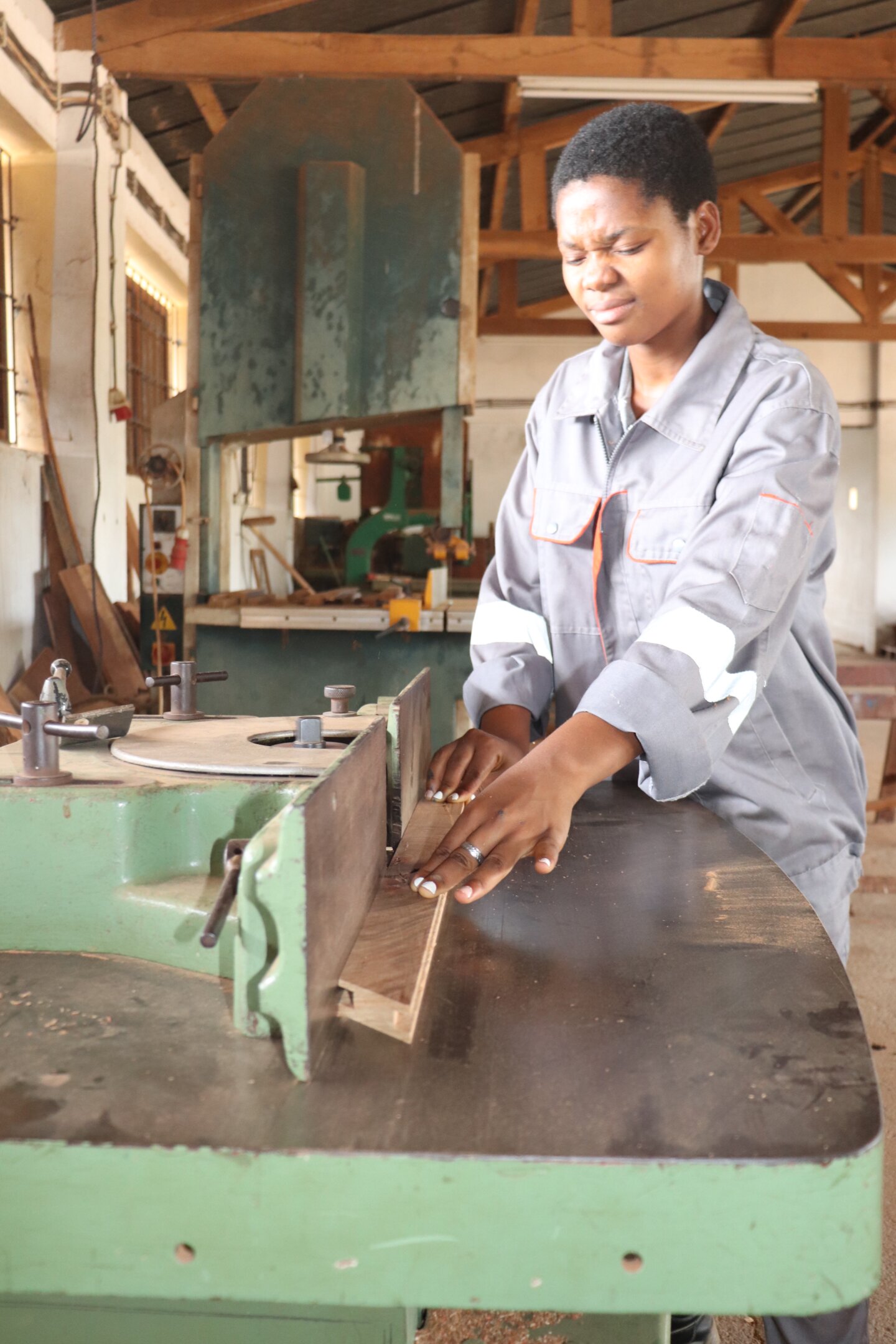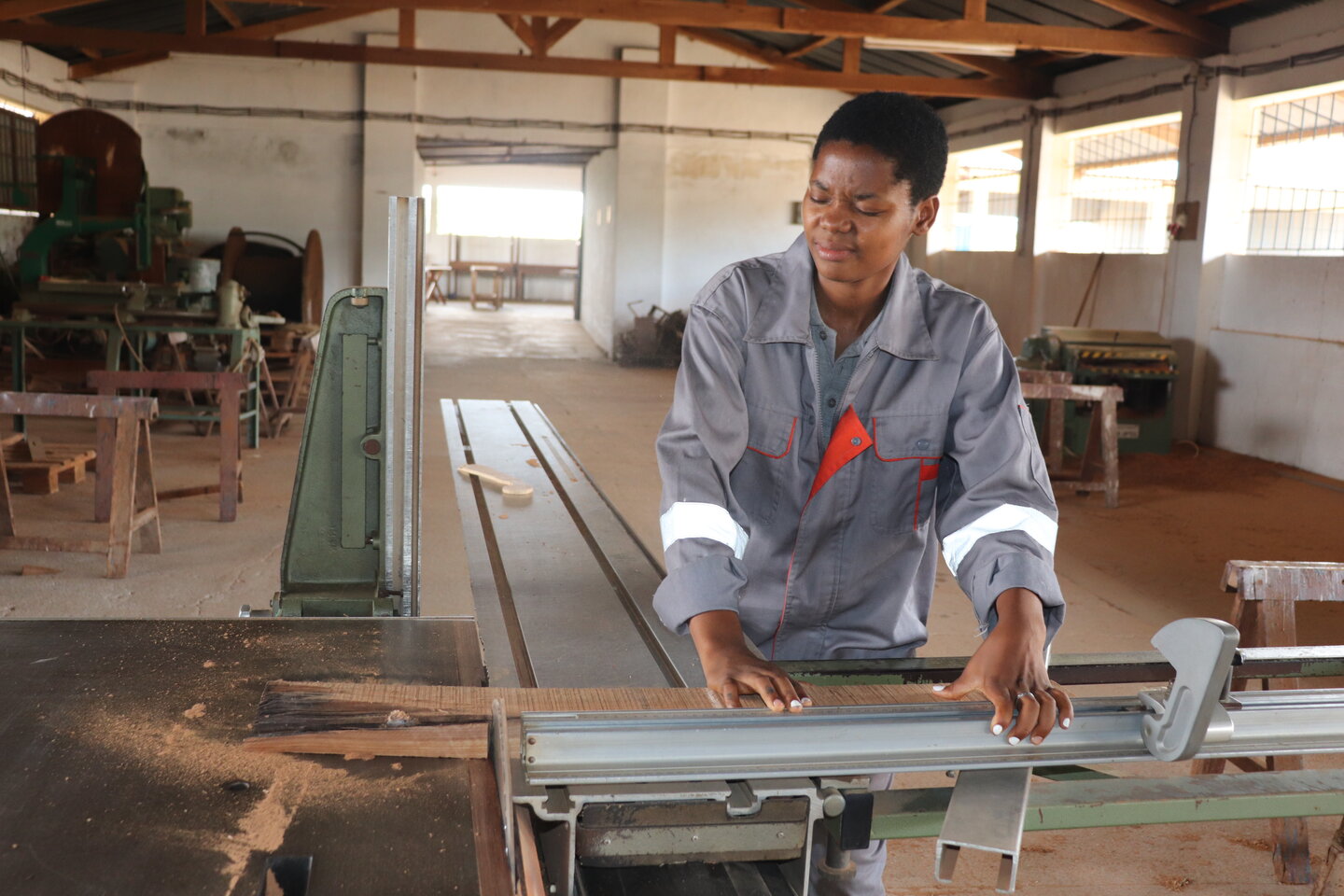These were some curiosities that inspired Neusa Yacussa, 17 years old, to enroll in the short carpentry course at the Instituto Polivalente de Marrere (IPOMA), in Nampula.

When the coronavirus pandemic hit Mozambique in 2020, classes were interrupted as part of the prevention and containment measures adopted by the government. At that time, Neusa was attending the 9th grade and was forced to stop and sit at home. Those were long days with nothing to do. She hated stagnancy, youthful idleness, as she wanted to spend her time and strength on useful and productive activities.
On a day just like any other, through a lady from the Marrere neighborhood (where she lives) in Nampula, she heard about short term courses in Carpentry, Metalwork and Civil Construction ministered by IPOMA, in a partnership with Helvetas Mozambique. Neusa applied with the interest to learn and to challenge herself in an area, commonly dominated by men.
Neusa defied the prejudices and criticism coming from other young women of her age, finished the carpentry course and went to work at the ArcMadeira company in Nampula. And for first time in her life, she began to earn her own income and to help her mother with the household expenses. But this was only the starting point of her story. It didn't take long, she was invited by the institution that trained her (IPOMA) to work as a trainer and thus encourage other young women to be trained and challenge the social norms that holds back women's rights, auto determination and socioeconomic development.


